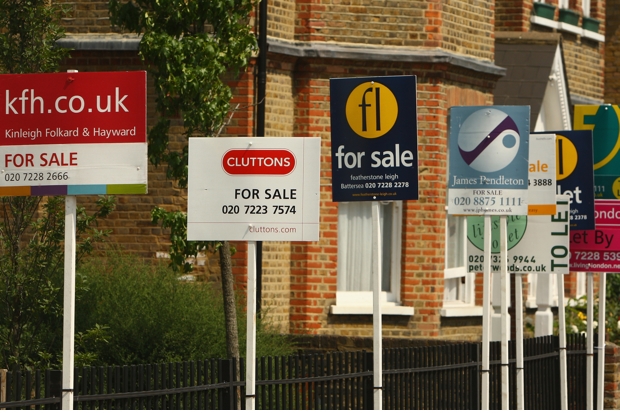First-time buyers need more help to put an end to the decline in home ownership, according to a report from the chief executive of one of Britain’s largest housebuilders.
Long-term building targets were also needed to avoid ‘kneejerk’ policy moves, the Redfern Review said. According to the BBC, the study found home ownership rates in England dropped from 71 per cent to 64 per cent over 12 years, with the steepest fall among young people. Labour commissioned the report. It said the findings revealed a ‘lost generation’. Among 25-34 year olds, the rate of home ownership fell from 59 per cent in 2003 to 37 per cent in 2015. The review was led by Pete Redfern, chief executive of Taylor Wimpey, who conducted the investigation in a personal capacity. Meanwhile, The Guardian reports that Barratt Developments, one of the UK Britain’s biggest housebuilders, has begun cutting prices on some of its priciest London homes because of waning demand at the top end of the market. Barratt said that although overall market conditions were healthy, it was proving more difficult to sell homes priced above £1 million in the capital because of too much supply. Black Friday Half of electrical goods sold on Black Friday are cheaper at other times of year, an investigation by Which? has found. The Telegraph reports that 49 per cent of products ‘on offer’ can be purchased for less in the months before or after the annual bargain frenzy. Some are up to £99 more expensive on Black Friday, prompting the consumer watchdog to warn customers that deals are not always what ‘they’re cracked up to be’. Tax avoidance Ministers have been urged to take action by Labour and trade unions following a Guardian investigation which found that an aggressive tax avoidance scheme used by temporary recruitment agencies is depriving the taxpayer of ‘hundreds of millions’ of pounds a year. The Guardian claims that agencies have made large sums by using ‘contrived’ financial arrangements to dramatically reduce their employer’s national insurance bills and by exploiting VAT rules originally designed to benefit very small businesses. Unemployment Britain’s unemployment rate dropped in the first three months after the Brexit vote to its lowest level in 11 years, the BBC reports this morning. But there were indications that a slowdown in the labour market could be on the cards. The unemployment rate slipped down to 4.8 per cent in July to September. However, the number of people in work rose by 49,000, the slowest increase since the three months to March this year, the Office for National Statistics said. And the number of people claiming unemployment benefits in October rose by 9,800, the biggest rise since May. NS&IProducts from National Savings & Investments (NS&I) have been jettisoned to the number one spot in the best buy tables, according to the Daily Mail.
As banks and building societies continue to cut rates on their variable rate accounts, NS&I has become the preferred option for savers looking for decent accounts.
Its Income Bonds pay 1 per cent. These bonds are aimed at those who want to take their interest each month — you cannot add it to your account. Even with £10,000, however, you will receive only £8.33 interest a month.
Stress
Financial stability is the factor most affecting the wellbeing of UK citizens, according to a new report released today. Research by health and wellbeing charity Central YMCA has revealed a 52 per cent divide in wellbeing scores between the most and least financially confident people in society. Being happy with your finances causes a 19 per cent uplift in wellbeing scores, while being extremely worried about money causes a 33 per cent fall, according to research undertaken for the report – which questioned a nationally representative sample of 1,000 UK adults on 14 statements relating to wellbeing and how various lifestyle factors affect these.





Comments